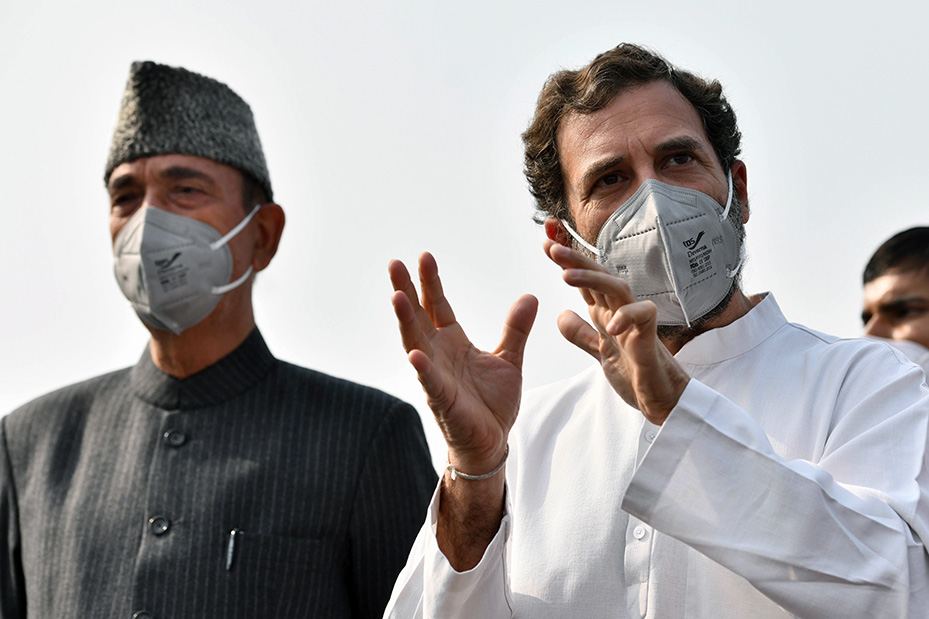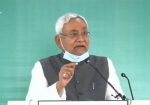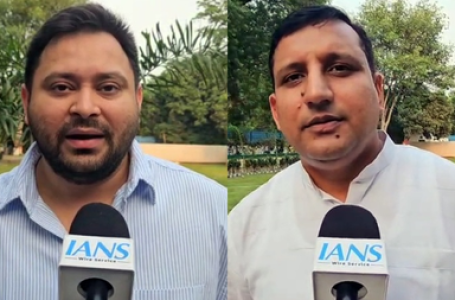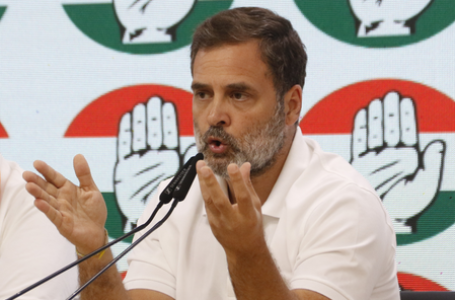
New Delhi: Finally, Ghulam Nabi Azad, the tallest Congress leader from Jammu and Kashmir and the main mover of the Group of 23 disgruntled partymen (G-23) has bid adieu to his parent party, the Indian National Congress.
The move that may have come as a sudden big breaking news, but it wasn’t a surprise for any seasoned political observer. The first big indication of such a move had come long ago. In fact, this indication came more than 18 months ago, on February 9, 2021, when Prime Minister Narendra Modi, to an utter shock to everyone, heaped lavish praise on the outgoing member of the upper house, Mr Azad, in his moving farewell speech in the Rajya Sabha. Equally telling surprise, matching PM Modi’s “dramatic” speech, was Mr. Azad’s take on it, who responded quite emotionally knowing fully well that his beloved birthplace, the state of Jammu and Kashmir, was in tatters because of PM Modi’s grandiose plan to Hinduise the whole country. Mr. Azad also conveniently skipped mentioning the removal of Article 370 in his farewell speech that had made him spew fire against the Modi government a few months ago and call it as the biggest historical blunder and a fraud played on the people of his state.
In about a month, in response to the Congress Working Committee meeting, Mr. Azad, along with other disgruntled members of G-23, called a separate meeting at his residence to discuss Congress’s poll debacle in various states. The idea was to target the Congress leadership, especially that of Rahul Gandhi, and demand overhauling of the Congress. The chasm between G-23 members and Congress had been widening since then and a divorce was always on the cards.
While it is not possible to say what eact trade off took place between PM Modi and Mr. Azad that reflected in the farewell speeches of the two, its impact was all there to see in the ever growing disgruntlement in the following months and the culmination that took place today, on 26th August, 2022 in the form of resignation that came in the form of a damning critique of the Congress leadership.
Mr. Azad, in his resignation letter to Congress working President Mrs. Sonia Gandhi, has unabashedly blamed Rahul Gandhi and his aides as one of the main reasons for the current condition of Congress.
“Unfortunately, after the entry of Shri Rahul Gandhi into politics and particularly after January, 2013 when he was appointed as the Vice President by you, the entire consultative mechanism which existed earlier was demolished by him,” said Mr. Azad in his resignation letter.
Picking on Rahul Gandhi rather specifically, Azad wrote further that “Since the 2019 elections, the situation in the party has only worsened. After Rahul Gandhi stepped down in a huff and not before insulting all the senior party functionaries who have given their lives to the party in a meeting of the extended Working Committee, you took over as interim president. A position that you have continued to hold even today for the past three years. Worse still, the ‘remote control model’ that demolished the institutional integrity of the UPA government now got applied to the Indian National Congress. While you are just a nominal figurehead, all the important decisions were being taken by Rahul Gandhi or rather worse his security guard’s and PA’s.”
Congress’s Dead Wood
While it is true that the relations between the G-23 leaders headed by the likes of Mr. Azad, Anand Sharma and Kapil Sibal with Rahul Gandhi and his new team had become highly toxic of late, it is also equally true that G-23 members hardly have any political capital in terms of mass appeal and following, unlike Ajay Kumar Lallu, Ramya Haridas or Kanhaiya Kumar.
None of these G-23 members was seen at the Congress protests that were routinely led by Rahul Gandhi and his sister Priyanka Gandhi Vadra – be it Hathras, Lakhimpur Kheri or Unnao. It is also a plain fact that none of them can win an election in his individual capacity. Despite occupying top posts in various Congress governments at the Centre, most of these G-23 leaders have come from the easy Rajya Sabha route instead of fighting hard on the ground and winning electorally the Lok Sabha seat. And let us not forget that the main reason because of which they occupied the top posts in both the party and the government was loyalty towards the Gandhi family.
Rahul Gandhi, perhaps, was not only aware of it but was increasingly getting restless about how to set it right. To win elections, every party needs energetic, result oriented leaders who are seen on the ground, can work tirelessly and command a crowd of followers with their skills. Interestingly, this lacuna of being not seen on the ground was also mentioned by the Congress party Sonia Gandhi in AICC’s recently concluded Chintan Shivir at Udaipur when she prodded senior party members to give up lethargy and comfort and join the protests and marches starting with Bharat Jodo Yatra. Ironically, Azad’s resignation has come at a time when the Congress is all set to embark on its nationwide Bharat Jodo Yatra against increasingly communalism and fundamentalism.
The Trade Off
The question, why Mr. Azad’s much awaited resignation letter has come now indicates the possible trade off that may have taken place between him and the BJP. One obvious possibility is that it would dampen the spirit of Congress which is planning to start its biggest endeavour in recent years with Mehangai Par Halla Bol rally at Ramlila Maidan on September 4 and taking it forward with 3500-kilometre Bharat Jodo Yatra beginning on September 7 from Kanyakumari.
The resignation of a stalwart like Mr. Azad who was associated with Congress in important capacities for the last 50 years does add a flavour of mistrust against Rahul Gandhi’s capabilities. The BJP government at the Centre in many states is at the receiving end on several issues like price rise, unemployment and rising wealth of billionaires and desperately wants to smother any possible attack that can rally people to become a weapon for its dethroning.
Another plausible reason is the desperate situation to restore normalcy and democracy in Jammu and Kashmir which is threatening to raise serious questions over Modi government’s democratic credentials across the world. Mr. Azad, a almost political pariah with no takers but a much respected Muslim face because of the past goodwill can be used to run a “elected government” in Jammu and Kashmir. Under tremendous international pressure, the Modi government is desperate to restore statehood back to Jammu and Kashmir and hold elections following the delimitation process. Mr. Azad is likely to float his own political party to contest elections in J&K as it would look too brazen if he joins the BJP. Will he be able to emerge as a popular choice in the long run is a debatable question that only future will tell but for now it is respite for the Congress led by Rahul Gandhi. – INDIA NEWS STREAM



















